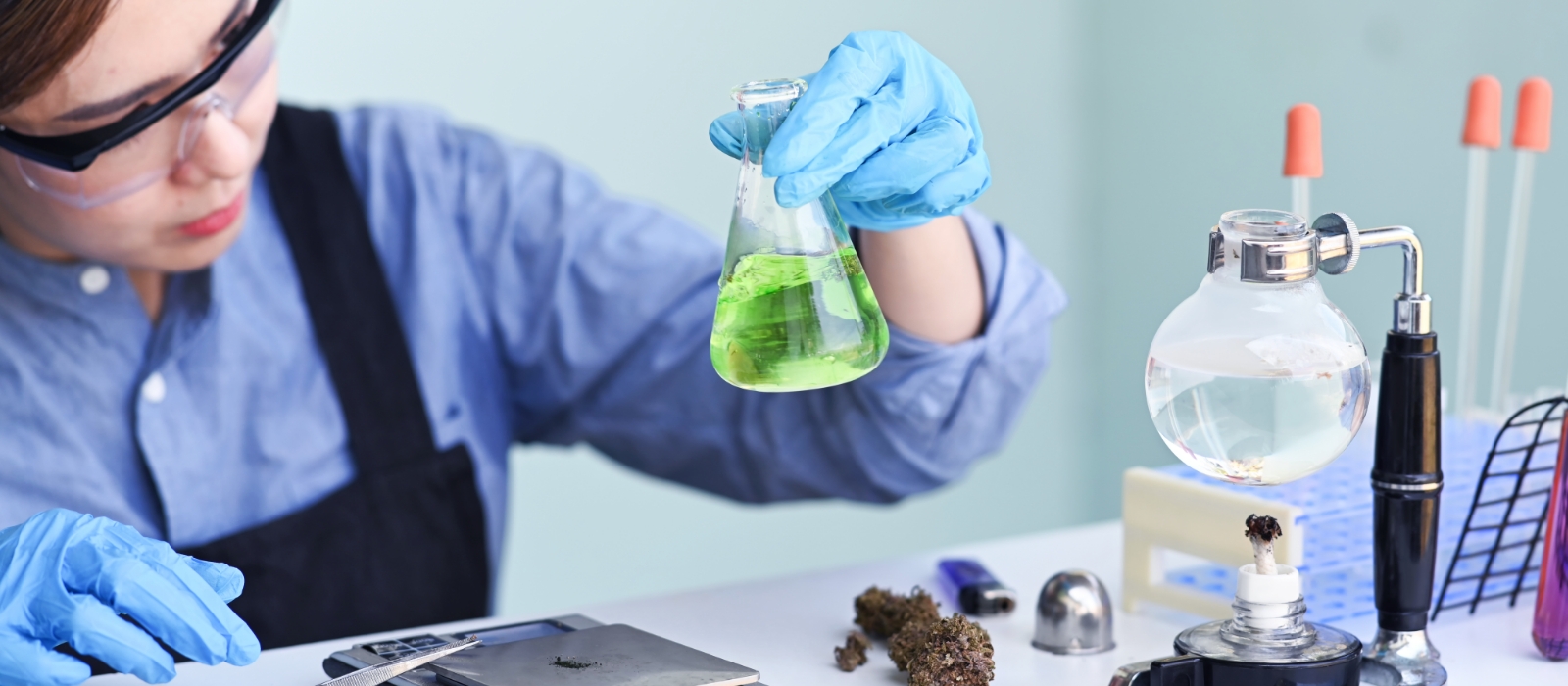Compliance with the State and Federal Regulations:
Laws and regulations vary from state-to-state, so labs must ensure their chosen equipment complies with the requirements on local and national levels.
As the U.S. cannabis market expands, with 38 states, three territories, and the District of Columbia now recognizing the medical and legal use of cannabis products, the need to ensure the quality and safety of the products is paramount. Achieving this is possible through precise analysis and appropriate cannabis testing equipment.
From analytical balances to advanced chromatography systems, these specialized tools help maintain product quality, meet regulatory standards, and earn market trust. Learn about their crucial role in the growth of the cannabis industry.

Essential Lab Equipment for Cannabis Testing

1. High-Performance Liquid Chromatography (HPLC) System
HPLC systems are a must-have in every cannabis lab. Their principal function is to determine the potency and purity of cannabis samples, specifically terpenes and cannabinoids such as THC and CBD, by separating their compounds using a sophisticated technique.
HPLC testing requires cannabis extracts in a liquid mobile phase in a chromatography reservoir to pass through a column containing a stationary phase. This process initiates the separation of compounds according to their chemical properties, which the system then measures to quantify and identify them.
Besides cannabis potency testing, an HPLC system also detects heavy metals, pesticides, and any other harmful contaminants in the sample.

2. Gas Chromatography Mass Spectrometry (GC-MS) System
GC-MS systems identify the various components of a cannabis sample using two methods: gas chromatography and mass spectrometry.
The first step in this testing process is separating the compounds by vaporizing the sample and injecting it into a chromatography column. The sample breaks down into various compounds inside the column before entering the mass spectrometer, which is the second step to determine the sample’s chemical profile and composition.
Other functions of GC-MS systems include analyzing terpene profiles and measuring residual solvents when paired with a headspace autosampler.

3. Quantitative Polymerase Chain Reaction (qPCR) Machine
Using a qPCR machine when testing cannabis has two purposes. The first is to identify specific DNA sequences, and the second is to detect fungal or microbial growth in a cannabis sample.
This cannabis testing equipment uses the principles of PCR to effectively quantify and amplify genetic markers associated with THC or CBD production. This process provides accurate data on the sample’s genetic composition that can be useful for potency analysis and strain identification.
These machines are also critical in discovering microbiological molds and bacteria. Microbial growth may occur during cultivation, handling, and packaging, so using qPCR machines is crucial for the quality control of cannabis products.

4. Centrifuge Machine
Laboratory centrifuges are essential for cannabis and hemp extraction, as they effectively and efficiently separate extracts from solid biomass materials. While typically used for cannabis extraction, a lab centrifuge like a microcentrifuge, benchtop centrifuge, or an ultracentrifuge can also be vital for cannabis testing.
What to Look For When Choosing a Cannabis Testing Equipment
As the cannabis industry in the U.S. grows, so does the demand for facilities with expertise and equipment to test cannabis. Other than the type of tests, laboratories should also consider other factors when selecting cannabis lab testing equipment. Here are some key factors to consider:

Compliance with the State and Federal Regulations:
Laws and regulations vary from state-to-state, so labs must ensure their chosen equipment complies with the requirements on local and national levels.

Accreditation and Certification:
Lab equipment with ISO accreditation for cannabis testing must always come first. Choosing certified or accredited equipment means selecting tools that meet strict quality standards.

Cost and Return of Investment:
Initial purchase and installation costs are important considerations, but testing facilities should also consider the costs of regularly maintaining and calibrating their equipment over time. Equipment from well-trusted manufacturers may cost more, but the benefits include better after-sales support and reliable long-term performance.

Technical and After-Sales Support:
Prioritizing manufacturers or suppliers that provide training and after-sales support is wise. With comprehensive training, the staff can maximize the use of their cannabis testing equipment and rely on round-the-clock support.
Sources:
https://customfabricators.net/laboratory/cannabis-lab-equipment/#cannabis-lab-testing-equipment
https://www.gmi-inc.com/programs/cannabis-laboratory-instruments-services/
https://www.truelabscannabis.com/blog/cannabis-lab-testing-equipment
https://www.laboratoryequipment.com/561371-Cannabis-Tests-and-the-Equipment-Needed-to-Perform-Them/